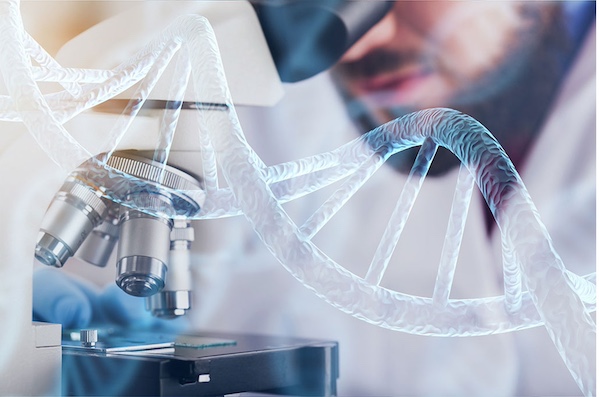Fluorescence Microscopy Combined with AI Enables Detection of Tumors at Early Stage
December 20, 2023
Source: drugdu
 347
347

Detecting cancer in the body or monitoring it during therapy is typically a time-consuming process, often conducted in later phases when signs become obvious. Researchers engaged in cancer research are continuously seeking reliable and sensitive techniques to detect a developing tumor at a very early stage and to closely monitor the success or failure of cancer therapy. Therefore, a breakthrough in early cancer diagnosis is a significant advancement. Researchers have now achieved a breakthrough with the development of a test for early diagnosis of cancer.
Researchers at the Paul Scherrer Institute (Würenlingen, Switzerland) have demonstrated that changes in the organization of the cell nucleus of certain blood cells can reliably indicate the presence of a tumor in the body. Using fluorescence microscopy, the team examined the chromatin of these blood cells – DNA packaged into a complex structure. They analyzed about 200 different characteristics, including the external texture, the packing density, and the contrast of the chromatin in lymphocytes or monocytes. They input microscope images from healthy and sick test participants into an artificial intelligence (AI) system and employed “supervised learning” to teach the software known differences.
In the subsequent “deep learning” phase, the algorithm automatically identified differences between “healthy” and “sick” cells that are not discernible to the human eye. This technique enabled the scientists to distinguish between healthy individuals and those with cancer with approximately 85% accuracy. They were also able to correctly identify the type of tumor disease – melanoma, glioma, or head and neck tumor. This new technique, based on blood cell chromatin, is potentially applicable to various cancer types and not just limited to follow-up of proton therapy. It could also be relevant to other forms of therapy, including radiation therapy, chemotherapy, and surgery, although further research is needed to confirm these applications.
“This is the first time anyone, worldwide, has achieved this,” said G.V. Shivashankar, head of PSI‘s Laboratory for Nanoscale Biology who led the research team.
Source:
https://www.labmedica.com/pathology/articles/294799621/fluorescence-microscopy-combined-with-ai-enables-detection-of-tumors-at-early-stage.html
Read more on
- Gusekirumab Injection Accepted by CDE, Multiple Pipelines Advancing Simultaneously March 4, 2026
- Yifan Pharmaceutical’s teriparatide injection has been accepted by the CDE (Center for Drug Evaluation), adding a new domestic player to the osteoporosis treatment field March 4, 2026
- //news.yaozh.com/archive/47318.html PD-1 sales surge March 4, 2026
- A major breakthrough! Roche’s oral BTK inhibitor achieves its third Phase III clinical trial victory, a game-changer in the multi-billion dollar MS (manufactured pharmaceuticals) market. March 4, 2026
- GB19 Injection Approved for Clinical Trials of Cutaneous Lupus Erythematosus March 4, 2026
your submission has already been received.
OK
Subscribe
Please enter a valid Email address!
Submit
The most relevant industry news & insight will be sent to you every two weeks.



